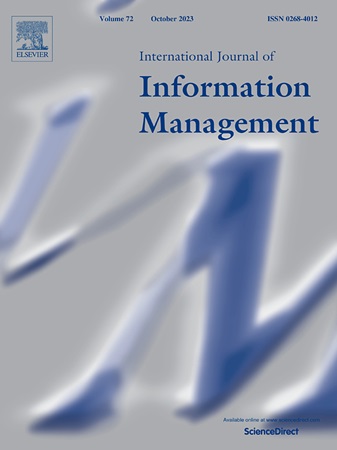管理在线小组学习:促进方式和小组奖励类型的影响
IF 27
1区 管理学
Q1 INFORMATION SCIENCE & LIBRARY SCIENCE
International Journal of Information Management
Pub Date : 2025-04-18
DOI:10.1016/j.ijinfomgt.2025.102909
引用次数: 0
摘要
探究共同体(COI)理论被广泛用于解释学生的在线学习体验。然而,它很少用于开发结构化的、基于证据的教学策略来管理探究社区。为了扩展COI理论,本研究提出了教学存在的双要素建构和问题驱动的在线小组学习模型。本研究旨在了解教学在场(结合促进和群体奖励)对社会在场(同伴互动)和认知在场(认知学习结果)的影响。它结合了促进中的领导风格(转型与交易)和团体奖励中的个人责任,以定义双要素教学存在方法的策略。采用2 × 2因子设计,在基于文本的平台上进行对照实验,观察诱导方式和个人问责制对群体奖励的影响。结果表明,群体奖励中的转换型(相对于交易型)促进方式和个人问责制均促进同伴互动和认知学习结果。他们还积极互动,以加强同伴互动和认知学习成果。本文讨论了双要素教学存在的不同要素的微妙影响,以及理论和实践意义。本文章由计算机程序翻译,如有差异,请以英文原文为准。
Managing online small-group learning: Effects of facilitation style and type of group reward
The theory of community of inquiry (COI) is widely used to explain students’ experiences in online learning. However, it is rarely used to develop structured, evidence-based teaching strategies for managing communities of inquiry. To extend COI theory, this study proposes a dual-element construct of teaching presence and a problem-driven online small-group learning model. The study aims to understand the effects of teaching presence (combining facilitation and group reward) on social presence (peer interactions) and cognitive presence (cognitive learning outcomes). It incorporates leadership style in facilitation (transformational vs. transactional) and individual accountability in group reward to define strategies for the dual-element approach to teaching presence. A controlled experiment with a 2 × 2 factorial design was conducted on a text-based platform to observe the effects of facilitation style and individual accountability in group reward. Results showed that both the transformational (vs. transactional) facilitation style and individual accountability in group reward promoted peer interaction and cognitive learning outcomes. They also interacted positively to enhance peer interaction and cognitive learning outcomes. The nuanced effects of the different elements of the dual-element approach to teaching presence are discussed, along with theoretical and practical implications.
求助全文
通过发布文献求助,成功后即可免费获取论文全文。
去求助
来源期刊

International Journal of Information Management
INFORMATION SCIENCE & LIBRARY SCIENCE-
CiteScore
53.10
自引率
6.20%
发文量
111
审稿时长
24 days
期刊介绍:
The International Journal of Information Management (IJIM) is a distinguished, international, and peer-reviewed journal dedicated to providing its readers with top-notch analysis and discussions within the evolving field of information management. Key features of the journal include:
Comprehensive Coverage:
IJIM keeps readers informed with major papers, reports, and reviews.
Topical Relevance:
The journal remains current and relevant through Viewpoint articles and regular features like Research Notes, Case Studies, and a Reviews section, ensuring readers are updated on contemporary issues.
Focus on Quality:
IJIM prioritizes high-quality papers that address contemporary issues in information management.
 求助内容:
求助内容: 应助结果提醒方式:
应助结果提醒方式:


